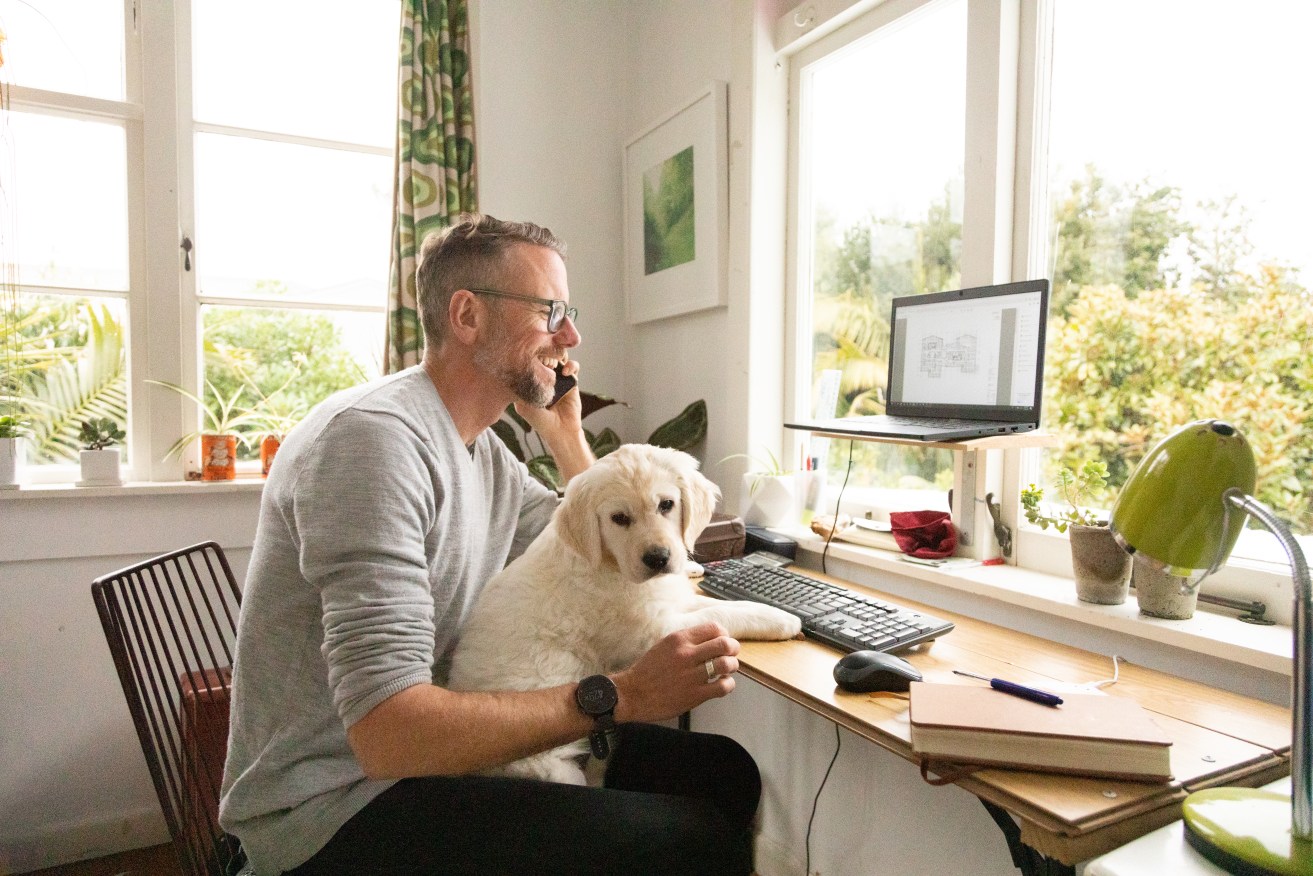Working from home wrestle steps up

Bosses want workers back in the office – but workers are generally less keen. Photo: Getty
The working-from-home arm wrestle between employers and employees has intensified – and neither side wants to back down.
More bosses want their staff to back on site these days, but it seems many workers would prefer to continue working from their homes.
It’s estimated only 39 per cent of all jobs can be done from home, according to Deakin University. But that remains a sizeable slab of the workforce that is comfortable with the kind of arrangements brought in more than three years ago as the COVID pandemic hit.
“You’ve got many, many people saying, ‘I’m really reluctant to come back when I’ve worked out that I can do the job from home’,” said Nicole Gorton, director at recruitment firm Robert Half.

Economic conditions are driving the back to work push, Nicole Gorton says.
The 2021 census found that of Australia’s 12 million employed people more than 20 per cent, or 2.5 million, worked from home.
However, economic conditions have become tougher in 2023 with interest rates rising and the cost of living climbing. Cost-cutting across many Australian industries is a major driver of bosses bring an end to work-from-home arrangements, Gorton said.
“The economy has changed again, it isn’t as robust as it was in 2022,” she said.
“That supply-demand, the job-rich hiring economy, companies doing this vast amount of hiring has shifted quite dramatically, and the appetite to then add to headcount is nowhere near as it was in 2022.
“What companies are now doing is they’re looking at, OK, well, we’ve got to get our people back.”
Back in May, CommBank chief executive Matt Comyn angered many of his employees when he issued a mandate for the bank’s 49,000 staff to come into the office for at least 50 per cent of their working time from July 17.
The edict prompted a wave of complaints to the Finance Sector Union.
“Hundreds of our members at CBA have contacted the union complaining the bank was overturning working arrangements that have worked well for the bank and its staff,” FSU national secretary Julia Angrisano said.
“Our members have raised serious concerns about the significant impact this change would have on them, including on their work-life balance, mental health and well-being and caring responsibilities.”
This week, a major Sydney council reportedly followed suit. The Sydney Morning Herald reported Randwick City Council had ordered its staff to return to the office every day by September 11.
A council spokeswoman told the SMH having staff actually in the workplace would mean more opportunities for collaboration, incidental on-the-job learning, coaching and development and better customer service.
But many were unhappy, apparently firing off an email to councillors that said, in part: “This decision has failed to consider the impact on staff – family commitments, mental health and wellbeing, commuting times and the financial burden imposed during the current economic crisis.”
Tweet from @2GB873
On Monday, deputy mayor Rafaela Pandolfini slammed the reported decision.
“I’m not supportive of a five-day mandate,” she told 2GB radio.
“I don’t think just jumping straight into that offers any flexibility.”
She said work arrangements for council staff should remain “hybrid and flexible”.
Hybrid work – where employees split their time between home and on site – may be the solution for many businesses. It’s already widely embraced, with Australia claiming the highest percentage of hybrid workers at 34 per cent, compared to the global average of 29 per cent, according to the Reinventing Work Report published by Adaptavist.
Cr Pandolfini said sticking with such arrangements was progressive. She brushed off arguments from advocates of a return to full-time office work, who say it offers economic benefits, especially to urban hubs and CBDs.
“We’re not seeing the economy slowing, are we?” she said.
“Why should we all head into the city, or head into these main hubs, and spend our money there?”
Australian Council of Trade Unions president Michele O’Neil said businesses should be careful about disrupting work-from-home arrangements with staff.
“Unions have negotiated working-from-home arrangements that set important safeguards and rights for workers; these must be honoured,” she said.
“Changes in arrangements must be done through negotiation with workers and their unions, not imposed on them.”








